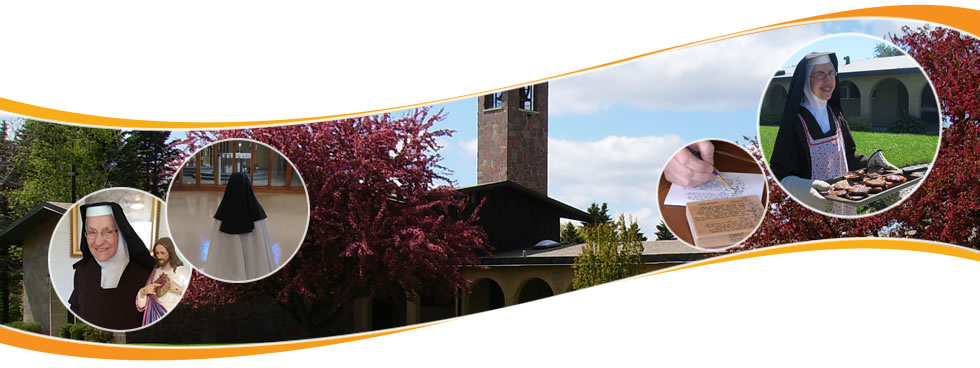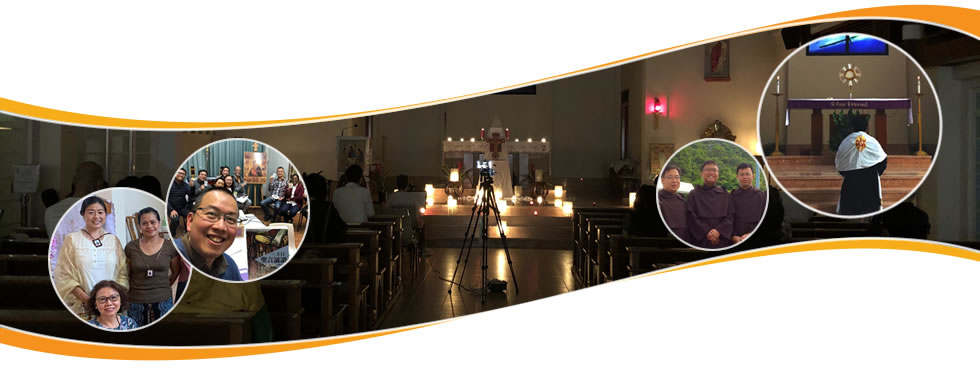1) Opening prayer
Father,
watch over Your family
and keep us safe in Your care,
for all our hope is in You.
We ask this through our Lord Jesus Christ, Your Son,
who lives and reigns with You and the Holy Spirit,
One God, forever and ever. Amen.
2) Gospel reading - Mark 7:31-37
Jesus left the district of Tyre and went by way of Sidon to the Sea of Galilee, into the district of the Decapolis. And people brought to him a deaf man who had a speech impediment and begged him to lay his hand on him. He took him off by himself away from the crowd. He put his finger into the man's ears and, spitting, touched his tongue; then he looked up to heaven and groaned, and said to him, "Ephphatha!" (that is, "Be opened!") And immediately the man's ears were opened, his speech impediment was removed, and he spoke plainly. He ordered them not to tell anyone. But the more he ordered them not to, the more they proclaimed it. They were exceedingly astonished and they said, "He has done all things well. He makes the deaf hear and the mute speak."
3) Reflection
In today’s Gospel, Jesus cures a deaf-mute. This episode is not known very much. In the episode of the Canaanite woman, Jesus goes beyond the frontiers of the national territory and accepts a foreign woman who does not belong to the people and with whom it was forbidden to speak. In today’s Gospel we notice this same opening.
Mark 7: 31. The region of the Decapolis. At that time, returning from the territory of Tyre, Jesus went to Sidon toward the Lake of Galilee, right through the Decapolis territory. Decapolis literally means “ten cities.” This was a region of ten cities in the southeast part of Galilee, and its population was gentile.
Mark 7: 31-35. To open the ears and to loosen the tongue. A deaf-mute man was brought before Jesus. People wanted Jesus to place His hands on him. But Jesus goes far beyond this request. He leads the man aside from the crowd, puts His finger into the man’s ears and touches his tongue with spittle. Looking up to Heaven, He sighed deeply and said, “Ephphatha!” that is, “Be opened!” At that same moment, his ears were opened, and at once the impediment of his tongue was loosened and he spoke clearly. Jesus wants the people to open their ears and to loosen their tongues!
Mark 7:36-37: Jesus wants no publicity. And He ordered them not to tell anyone about it, but the more He insisted, the more widely they proclaimed it. Their admiration was unbounded and they said, “Everything He does is good; He makes the deaf hear and the dumb speak.” He prohibits that the cure be proclaimed, but in fact that does not happen. Those who have experienced what Jesus has done go and tell others, whether Jesus wants it or not! The people who were present at the cure began to proclaim what they had seen and summarize the Good News as follows: Everything He does is good; He makes the deaf hear and the dumb speak! This affirmation of the people makes us remember creation, when it was said, “God saw that everything was good!” (Gen 1: 31). And this also recalls the prophecy of Isaiah, where he says that in the future the deaf will hear and the dumb will speak (Is 29: 28; 35: 5, cf. Mt 11: 5).
The recommendation not to tell anybody. Sometimes, the attention which Mark’s Gospel attributes to the prohibition of Jesus to proclaim the cure is exaggerated, as if Jesus had some secret that He wanted to keep. In the majority of cases in which Jesus works a miracle, He does not ask for silence. Rather, He once even asked for publicity (Mk 5: 19). Sometimes, He orders not to announce the healing (Mk 1: 44; 5: 43; 7: 36; 8: 26), but obtains the opposite result. The more He prohibits it, the more the Good News is proclaimed (Mk 1: 28,45; 3: 7-8; 7: 36-37). It is useless to prohibit! The interior force of the Good News is so great that it spreads by itself.
Growing openness in the Gospel of Mark. Throughout the pages of Mark’s Gospel, there is a growing openness toward the other populations. Thus Mark leads the readers to open themselves toward the reality of the world around and to overcome the preconceptions which prevent peaceful co-existence among the different populations. When He passed through the Decapolis, a gentile region, Jesus responded to the request of the people of the place and cured a deaf-mute man. He is not afraid to be contaminated with the impurity of a gentile, because in curing him, He touches his ears and his tongue. The Jews and the disciples themselves have difficulty hearing and understanding that a gentile who was deaf and dumb can now hear and speak thanks to Jesus who touched him. It recalls the Song of the Servant, “The Lord God has opened the ears, and I listen to Him” (Is 50: 4-5). In driving the merchants out of the Temple, Jesus criticizes the unjust trade and affirms that the Temple should be a house of prayer for all peoples (Mk 11:17). In the parable of the wicked tenants, Mark refers to the fact that the message will be taken away from the chosen people, the Jews, and will be given to others, the gentiles (Mk 12:1-12). After the death of Jesus, Mark presents the profession of faith of a gentile at the foot of the Cross. In quoting the Roman centurion and how he recognizes the Son of God in Jesus, Mark is saying that the gentile is more faithful than the disciples and more faithful than the Jews (Mk 15:39). The openness to the gentiles appears very clearly in the final order given by Jesus to the disciples, after His Resurrection: “Go out to the whole world and proclaim the Gospel to all creation” (Mk 16:15).
4) Personal questions
Jesus shows a great openness toward people of another race, another religion and of other customs. We Christians, today, do we have the same openness? Do I have this openness?
Definition of the Good News: Everything Jesus does is good! Am I good News for others?
5) Concluding prayer
Sing a new song to Yahweh!
Sing to Yahweh, all the earth!
Sing to Yahweh, bless His name! (Ps 96:1-2)
































